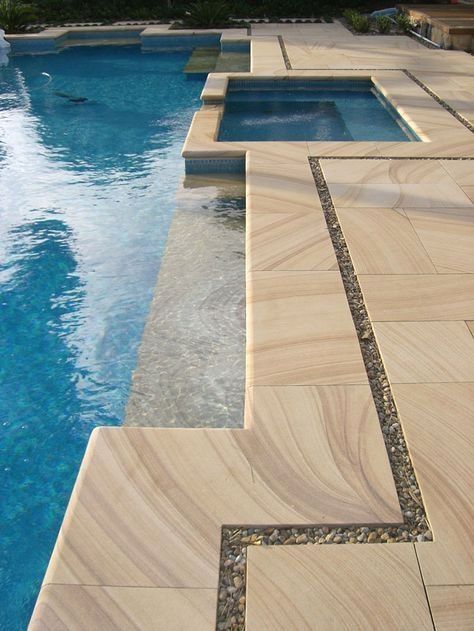Travertine is an ideal surface to consider for outdoor landscaping and as a floor tile for your pool deck because it is so resistant to temperature extremes.
Travertine salt water pool.
Salt water and sealer.
Given that travertine is extremely water absorbent this presents a particular problem in colder climates where freezing occurs and the water trapped in the stone expands.
Salt is also much softer on the skin than these types of chemicals and will allow you and your family to be more comfortable during and after a swim.
Although we feel the beauty of travertine around our swimming pools is unsurpassed these recent discoveries have motivated us to recommend additional maintenance for this surface when installed in conjunction with a salt water pool.
Salt water pools offer a number of health and maintenance benefits.
This maintenance and care will help to preserve the longevity of the patio.
Even when the stone receives direct exposure to sunlight it will feel cool to the touch when you walk on it with your bare feet.
They are impervious to cracking water and moisture resistant but if you are installing travertine next to a salt water pool you should take care to protect the stone with a penetrating commercial sealant.
Travertine can safely be used around a salt water pool as long as the appropriate measures are taken to protect it.
Travertine is very tolerant of temperature extremes but we recommend choosing a light coloured tile for around pools so it stays cool it the hot summer months.
Salt water pools contain fewer chemicals than those that use chlorine or other harsh substances to filter and clean the water.
Travertine is able to hold its own around a salt water pool as long as the appropriate measures are taken to protect it.
It is recommended to seal the travertine with a water repellent impregnating sealer to prolong the life of the patio.




























